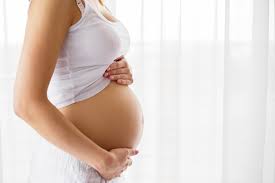
The health of your teeth, gums, and mouth are critical to your overall health and the health of your baby. As you take care of your mouth and get regular dental check-ups, especially during pregnancy, you are more likely to stay healthy and have a healthy baby.
During pregnancy, our bodies undergo many changes and some of these changes can affect the health of our mouths, and so it is more important than ever to go to the dentist. Some of these changes include:
- During pregnancy, hormonal changes can increase the risk of developing gum disease, which can affect the health of your developing baby.
- During pregnancy, your gums are more likely to bleed and there is a greater chance of them becoming infected.
- During pregnancy, you are more likely to get a build-up of plaque (a type of bacteria) on your teeth.
- If you have a dental emergency, do not wait. Infections in the mouth can be harmful to you and your baby.
- It is highly recommended to get your teeth cleaned during pregnancy to help decrease inflammation in the mouth.
Don’t miss your dental check-up just because you are pregnant!
Going to the dentist during pregnancy is safe, important, and recommended. Remember, by taking care of your mouth and getting regular dental check-ups, you are more likely to be healthy and to have a healthy baby!
If you need help finding a dentist use NHS choices website to find an NHS dentist.
Remember you are entitled to free dental treatment on the NHS while pregnant, all you need is a Maternity Exemption Certificate signed by your doctor or midwife. This certificate entitles you to FREE prescriptions and NHS dental care while pregannt and 12 months after baby’s due date. You can get the Maternity Exemption application form (FW8) from your doctor or midwife.

Here’s how you can look after your teeth and gums:
- Clean your teeth carefully twice a day for two minutes with fluoride toothpaste – ask your dentist to show you a good brushing method to remove all the plaque.
- Brushing is best with a small-headed toothbrush with soft filaments – make sure it’s comfortable to hold.
- Avoid having sugary drinks (such as fizzy drinks or sweet tea) and sugary foods too often – try to keep them to meal times.
- If you’re hungry between meals, snack on vegetables and avoid sugary or acidic foods (get tips on healthy snacks).
- Avoid mouthwashes that contain alcohol.
- Stop smoking, as it can make gum disease worse.
If you have morning sickness (nausea and vomiting), rinse your mouth with plain water after each time you vomit. This will help prevent the acid in your vomit attacking your teeth.
Do not brush your teeth straight away as they will be softened by the acid from your stomach. Wait about an hour before doing so.

Dental treatments to avoid in pregnancy
When you go to the dentist, make sure they know you’re pregnant.
Discuss with your dentist whether any new or replacement fillings should be delayed until after your baby is born. The Department of Health advises that amalgam fillings shouldn’t be removed during pregnancy.
If you need a dental X-ray , your dentist will usually wait until you’ve had the baby, even though most dental X-rays don’t affect the tummy (abdomen) or pelvic area.

